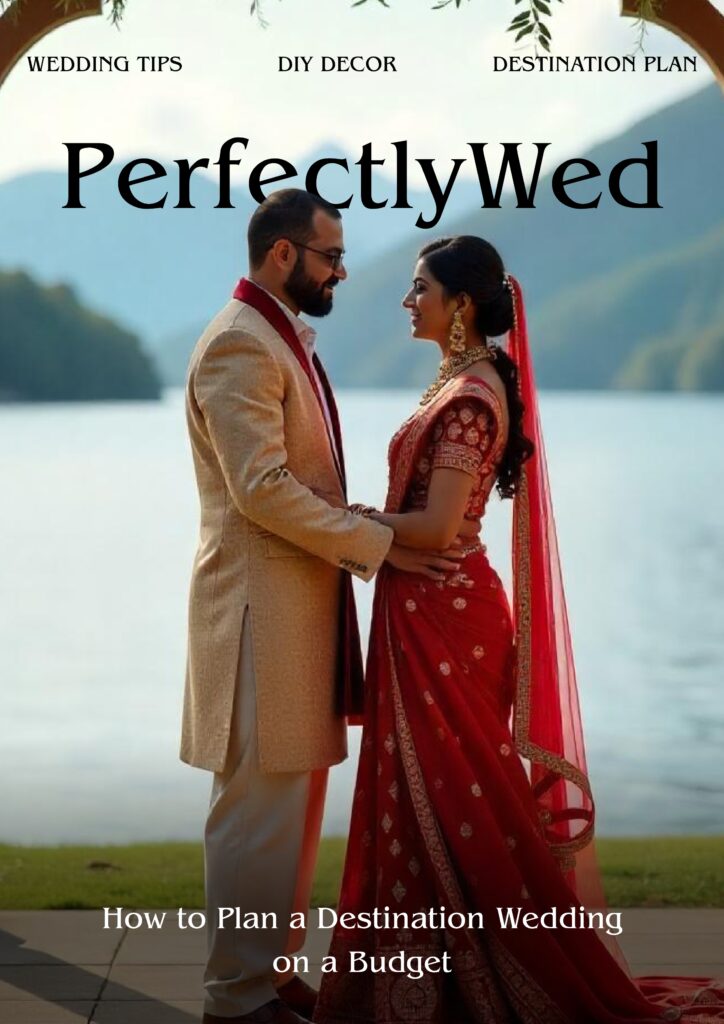
MARRIAGE LAWS
RULES & LAWS
VISA RULES

Check out the Legal Requirements for a Destination Wedding
Topics
Calling all wanderlusting lovebirds! Maya and Raj here, back with more shaadi wisdom, this time tackling the legalities of saying “I do” in paradise. Planning a destination wedding is thrilling – picture exchanging vows with the ocean as your witness or tying the knot in a centuries-old palace. But amidst the dreamy visions, legal requirements can feel like a pesky monsoon interrupting your mehendi ceremony. Relax, desis! We’re here to navigate the paperwork jungle and ensure your dream shaadi stays picture-perfect, on both sides of the law.
Choose the Right Time
Timing is everything! Some destinations have specific seasons or months when marriage ceremonies are not allowed, so plan accordingly. Knowing the best time to exchange vows not only enhances the overall experience but also ensures that your marriage is legally recognized.
Gather the Essential Documents
Prepare for a paperwork party! Most destinations will ask for basic documents such as passports, birth certificates, and proof of marital status. Some countries might need additional paperwork, such as divorce decrees or death certificates if applicable. Be sure to have multiple copies of each document, and don’t forget to check if they need to be translated into the local language.
Visa, Baby, Visa!
Before packing your lehengas and sherwanis, check your passports and visas. Make sure everyone attending needs the right visa for your chosen destination. For foreign partners, Indian tourist visas might not be enough for a wedding, so research specific wedding visas or long-term visas (consult the Indian embassy!). Remember, visas take time, so apply well in advance to avoid last-minute drama.
Know Your Destination’s Laws
Different countries, different rules! Some destinations may require residency before the wedding, while others might have a waiting period. Familiarize yourself with the local marriage laws, including documentation needed, waiting periods, and any specific requirements for non-residents. Your dreamy beach wedding can quickly turn into a legal maze without proper preparation.
Local Wedding Planners Are Your Best Friends
When in doubt, trust the locals! A local wedding planner can be your guiding light through the legal intricacies. They understand the local laws, customs, and can help you navigate the bureaucratic waters. Hiring a seasoned wedding planner is an investment in stress-free nuptials.
Notice is Key, Like That Extra Samosa in the Tiffin
In India, all marriages, regardless of location, need a 30-day notice period. This involves submitting a “Notice of Intended Marriage” form to the local marriage registrar in your chosen destination. It’s like your RSVP to the universe, letting everyone know your shaadi is officially on the calendar. Don’t forget to get it signed by witnesses and stamped by the registrar – it’s your pre-wedding ticket to matrimonial bliss.
Documents, Documents, Don’t Be a Forgetful Munnabhai!
Paperwork? Ugh, yes. But fear not, it’s not as scary as a sasurala visit after too much jalebis. Gather all the essential documents for both partners, like valid passports, birth certificates, proof of address, and proof of single status (affidavits or divorce decrees, if applicable). Remember, specific requirements might vary depending on your location, so check with the local registrar to avoid any last-minute hiccups.
WITNESSES – CHOOSE WISELY
(and Make Sure They’re Awake During the Ceremony!)
Three cheers for your shaadi squad! You’ll need at least three legal witnesses present at the ceremony to sign the marriage register. Choose reliable friends or family members who understand the gravity of the situation (no sleepy aunties during the pheras, please!). Bonus points if they know how to do a killer bhangra, because what’s a desi wedding without some foot-stomping fun?
THE GRAND
FINALE
Registration is Your Happy Ending!
After all the dancing, dhol beats, and emotional vows, don’t forget the final step – registering your marriage. Within 30 days of the ceremony, submit the signed marriage register and required documents to the marriage registrar. This officializes your union and ensures your happily ever after has a legal stamp of approval.
CRUCIAL
TIP
Every state in India has its own quirks and customs, so research any specific
marriage requirements for your
chosen destination. For example, some states might require pre-marital counselling or blood
tests. Remember,
respecting local laws and traditions not only avoids legal hassles but also shows appreciation
for the place
making your dream shaadi come true.
So, there you have it, lovebirds! With a
little planning and
preparation, you can navigate the legal maze of
a destination wedding and focus on what truly matters – celebrating your love in a breathtaking
setting. Now
go forth, conquer those paperwork mountains, and get ready to say “I do” in paradise! Don’t
forget to pack
your dancing shoes – those legal documents won’t shake themselves! Happy planning!
Acknowledgements
Disclaimer
Images are sourced from public social media for informational or commentary purposes only. All copyrights belong to original owners. Use is under fair dealing per Section 52(1)(b), Copyright Act, 1957. Removal requests are honored.














